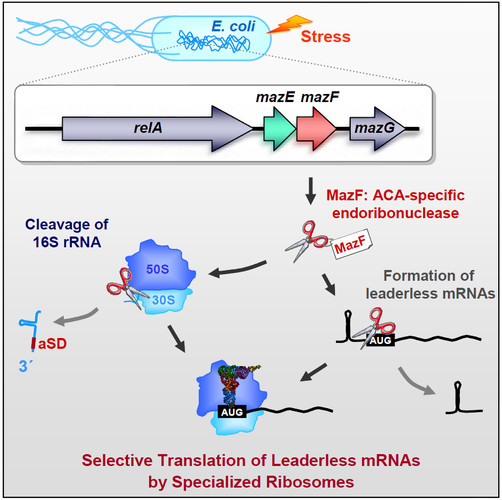

The publication in Cell of MFPL group leader Isabella Moll reveals a novel mechanism of stress response in E. coli.
Bacteria frequently experience changes in their environmental conditions. In order to survive they have developed different strategies to alter gene expression. Oliver Vesper, Isabella Moll and their team show that - when encountering stress - the bacteria Escherichia coli generates functionally specialized ribosomes by truncating rRNA mediated by the endoribonuclease MazF, the toxin component of the toxin–antitoxin module mazEF. Moreover, MazF specifically removes 5´-UTRs of distinct transcripts to form leaderless mRNAs, which are selectively translated by the altered ribosomes to adjust the translational program to stress.
Original publication in Cell:
Oliver Vesper, Shahar Amitai, Maria Belitsky, Konstantin Byrgazov, Anna Chao Kaberdina, Hanna Engelberg-Kulka and Isabella Moll. Selective Translation of Leaderless mRNAs by Specialized Ribosomes Generated by MazF in Escherichia coli.